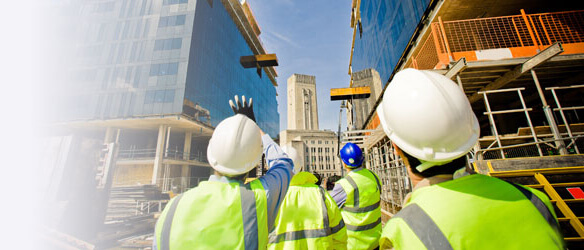Engineering Insurance

Engineering Insurance
Engineering insurance provides very broad cover for damage to the Insured property due to engineering risks during engineering activities, planning, designing, erection/construction, Testing, commissioning, operation, and maintenance.
Types of Engineering Insurance Policies
- Machinery Breakdown (Machinery Insurance)
Machinery Breakdown Insurance offers financial protection in case of machine suffers accidental, electrical and breakdown requiring repairs and/or replacement. This insurance is important for everyone who operates the machines. All types of machinery, plant, mechanical equipment, and apparatus may be covered under this insurance; such as for example power generating units, the power distributing plant as well as production machinery and auxiliary equipment, etc. By its nature, Machinery Breakdown Insurance is“accident” insurance on machinery. Thus, it covers
- Unforeseen and sudden physical loss of or damage to the insured items,
- Faulty design faults at a workshop or in erection, defects in casting and material,
- Faulty operations, failure of safety system/lubrication system/control system, lack of skill, negligence.
- Electronic equipment insurance
Risk-prone equipment ought to be insured to prevent unforeseeable incidents from affecting the business process. Electronic Equipment such as computers, Microprocessors, Word – processors, Telecommunication types of equipment. Machine meant for medical use and other misc. Equipment like films, television studio equipment can be covered under this policy. It covers:
Fire, lightning, explosion, flood, storm, etc.
Any electrical/mechanical breakdown.
Faulty design, faulty materials, faults in manufacturing/assembly erection.
Damage due to moisture and humidity.
Damage due to faulty/careless/ negligent operation by employees.
Riot & strike damage and malicious damage.
Loss or damage due to theft or burglary/house breaking.
- Contractor All Risk (CAR)
Contractor’s Insurance is designed to insulate independent contractors from financial liability. Although a CAR policy may be taken by the principal or by the contractor, usually, under the terms of the agreement between the contractor and the principal, it is obligatory on part of the contractor to affect CAR insurance in their joint names before the commencement of the project.
The sum insured under the policy must not be less than the full value of the contract works at the completion of contract inclusive of all materials, wages, freight, customs duties, construction cost and material or items supplied by the principal.
The CAR insurance policies generally issued for all types of Civil Engineering projects like dwellings, office building, commercial building, go downs and warehouses, hospitals, schools, silos, steel structure, roads, water supply lines, construction work, etc.
- Erection All Risk (EAR)
This is a insurance cover that is available to the client in respect of any sort of contingency from the moment the materials are unloaded on the site of the project / works and continuous during storage, physical erection and till the test run is over which covers all physical losses or damage as under:
- Fire, lightning, theft & burglary.
- Impact from falling objects, collision, failure of changes or tackles.
- Failure of safety devices, leakage of electricity, insulation failure, short circuit, explosion.
- Carelessness, negligence, fault in erection, strike & riots.
- Storm, tempest, flood, landslide, rockslide, earthquake.
- Contractor Plant and Machinery (CPM)
CPM policy has been designed to provide a cover on an annual basis to a contractor who may be using his plant and machinery at different projects during the course of the year. The cover under a CPM policy is not limited to a specific project site and is operative at all sites wherever the plant and machinery is in use and even while the same is lying at the contractor’s own premises. The Contractor’s plant and machinery covers:
- Fire, lightning, external explosion, earthquake, flood, inundation, subsidence, landslide and rockslide.
- Storm, tempest, hurricane, typhoon and tornado.
- Burglary, theft, riot and strike and malicious damage.
- Accidental damage while at work due to faulty man – handling, dropping or falling, collapse, collision and impact.
